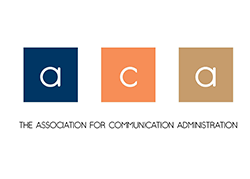Abstract
In an effort to demonstrate the field’s usefulness and essentiality to our world, communication studies’ praxis orientation needs to be clearly pursued and publicized. Implementing service-learning into the communication studies classroom could achieve this goal. Through extending the scholarship of Britt (2012) and Pollack (1999), this article proposes that communication educators ground and articulate their service-learning pedagogy from three different paradigmatic lenses; the experiential paradigm, the social change paradigm, and the citizenship paradigm. Moreover, communication administrators ought to understand the different paradigmatic foundations, which drive service-learning enactment, in an effort to not privilege one perspective over another. The service-learning literature is vast and discusses service-learning’s history, definitional ground, and benefits. This article responds to one criticism of service-learning and provides a way in which communication educators and administrators could respond. By implementing service learning from a clearly articulated paradigmatic foundation, the pedagogy’s praxis orientation is strengthened, opening up the opportunity for more bridges to be built between academy and community.
Recommended Citation
Burk, J. K. (2018). Building bridges between communication studies and community: A praxis-approach. Journal of the Association for Communication Administration, 237(1), 4-6.


